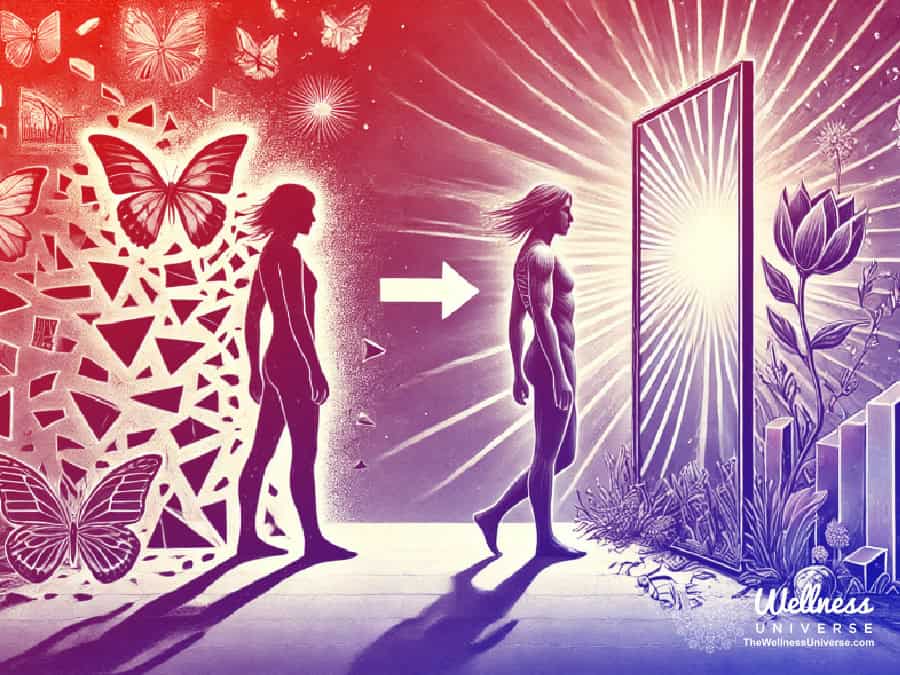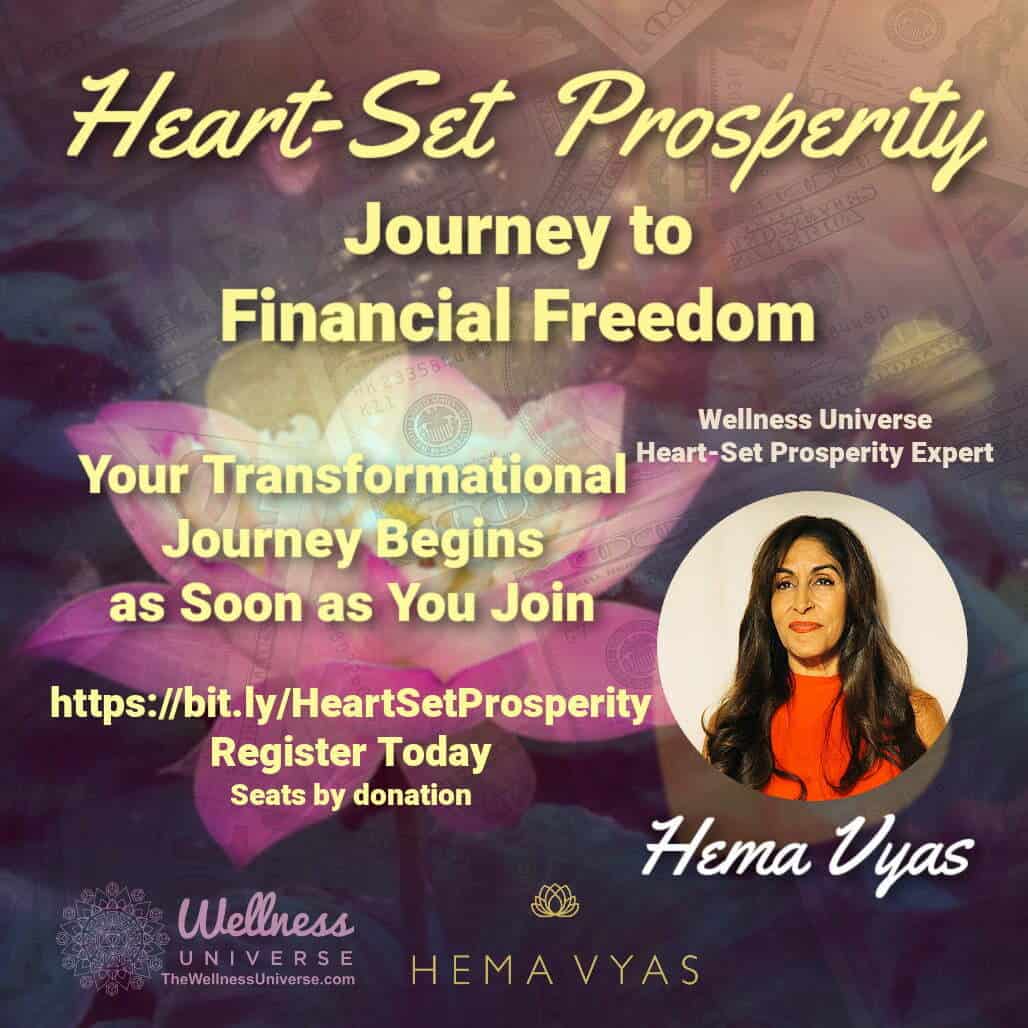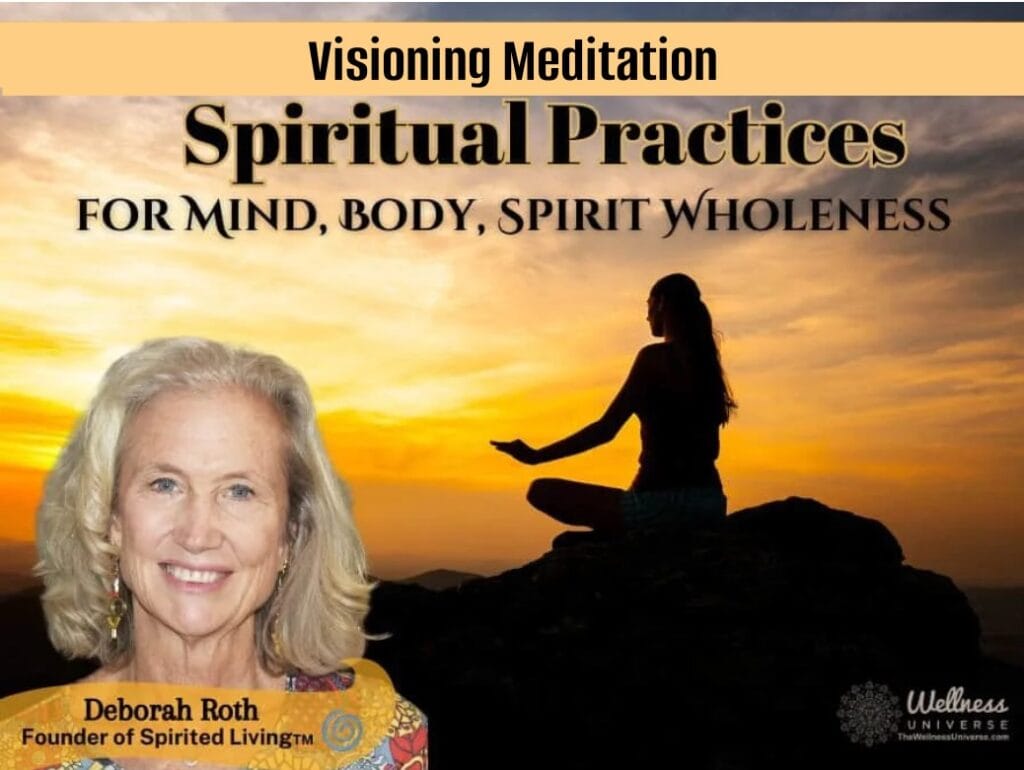In a world that often views empaths as victims, we’re all ready for an upgrade.
Brace yourself for an unpopular viewpoint: Life is a mirror, even for empaths. Your outer world gives you valuable intel about what’s in your blind spots.
In your blind spots, you’ll discover what you believe about yourself, others, and how life works. You’ll find out what you secretly feel, underneath the veneer of the acceptable.
As you look into those shadowy parts of yourself, it’s important to be as kind as you wish others would be. Chances are, when you get good at treating yourself gently, others will mirror this back to you as well.
Are you a disempowered empath? If so, there are patterns in those blind spots that once served you well but no longer do.
When you were young, you learned to watch carefully. Someone around you was unpredictable. It could have been a parent, a sibling, or a bully at school. In response, you grew ‘big antennae.
Your survival depended on your ability to perceive what kind of mood they were in. You adapted, and things worked out, more or less. The point is that you survived.
You can use your empathic antennas in service of thriving as soon as you’re ready to do some spiritual adulting.
The archetypal empath has both a light and a shadow path. On the light path, you could be a healer, light worker, or giver, which might sound glamorous, but it’s not. Nobody tells you this, but I’m going to: Being a healer requires more work than your clients will ever need to do.
Whatever roles you play in the world, being an empath was always meant to be your superpower. Or one of several!
Superpowers are expensive. You have to cultivate them and gain the skills to use them as blessings rather than curses.
On the shadow side, you’re at the whim of the energies around you. Which manifests in two ways:
- Focusing on others at the expense of yourself.
- Focusing on yourself, but in a reactive way, which never translates into healing. This isn’t the same as being an introvert.
In the first case, you’re always scoping for what the people in your life need. If they aren’t needy enough, you’ll bring in people who are.
The disempowered empath is not in tune with their own truths, wisdom, or intuition. Their intel gets confused. Their intuitive knowledge is mixed with hidden fears and subconscious agendas.
If you’re an empath with unmanaged gut problems, please don’t give others advice. That’s because the most basic survival mechanism, your gut wisdom, is askew. You need to be able to trust yourself deeply before you can do right by others.
When you’re walking the shadow path, you observe others’ pain, and it’s upsetting. Then you try to fix them (your way) so you can get out of pain. Your help is not based on essential truths. Innocent as it is, the disempowered empath’s goal is to get out of pain. This changes as you discover the essential skill of discernment.
What is that? First, it’s knowing what’s yours and what’s not. From there, you’re able to observe what’s happening in another from a detached viewpoint. You’re still compassionate. But you don’t have the compulsion to fix others based on trying to fix yourself or your past.
Are you an empath who has children? Your self-care is critical, so you can pass on your healing instead of your wounds.
(A note on children and karma: Your children are here to learn from you as the human you are. Know that some of it will be unlearning the conditioning you’ve brought to the table. You don’t have to be the perfect parent; you already are.)
If you’re ready to be an empath who acts with clarity, read on. I’ve shared some dynamite tools below.
Three Tools to Become an Empowered Empath
The most challenging thing about these resources is using them yourself first. Remember that to help others, you must reside in the core of your own truth. And you must be embodied, which means you can first feel what YOU need.
The Embodied Check-In
This practice is designed to help empaths with the skill of discernment. You need to distinguish between:
- Your perception of what’s going on for others (which the mind could be projecting)
- What’s actually going on for them
- What’s going on for you
- What you’re responsible for and what you’re not
- What you sense and what you know without supporting facts
- What you feel in your body, without mental projections or judgements
We do this at the beginning of all my group classes. It’s good practice and a quick way for me to know where everyone is at. Do this daily, or several times each day.
The first part starts with “I am _____ (feeling or emotion) and _____ (feeling or emotion).
It’s important to say,”I am” rather than “I feel” for clarity. What you feel as an empath can get misplaced.
Using the “I am…” statement ensures that you describe an emotion, rather than a projection. There’s a big difference between saying, “I am hurt” and saying, “I feel disrespected.” The first is owning your experience, while the second is projecting it onto another.
It’s also important to own your emotions completely without minimizing them. If you’re mad at someone, learn to say, “I am mad at you.” Don’t say, “I am kind of mad at you.”
Then, feel into your body. What’s the first spot that speaks up? Say, I feel _____ (sensation) in my _____ (body part).
For example, I feel tension in my neck.
This is vulnerable work!! Start by doing it daily in your journal. Then, find someone you can do it with. The format would be for the other to say, “Thank you for sharing.” No unsolicited advice!
Eventually, you’ll be able to share this with some of the important people in your life.
Setting Boundaries: It’s not what you think
For the disempowered empath, setting boundaries is almost impossible. You can’t convince someone of your worthiness when you don’t believe it yourself. So how do you believe it when you don’t?
By noticing where you cross your own boundaries and beginning to honour them instead. Stop eating foods you know don’t make you feel good. Start giving yourself enough rest. When you honour yourself in basic ways, others will, too.
You’ll know you’re going in the right direction when you barely have to whisper, ‘No thank you’. People hear and feel your resolve, and they know the matter is closed.
With close family members, the work is deeper, but the principles are the same.
Shift Your Subconscious Beliefs
Even when you’ve done the work to the best of your ability, there will still be something left. If you try to go it alone at this point, the shift can take much longer than it needs to. Indeed, it may never happen. We’re designed to heal together!
To become an empowered empath, you need a healing team. Yes, you have to do your own work, too. But you can’t do it in a vacuum.
(Believe me, if it were possible, I’d have found a way to do it. It isn’t.)
Subconscious beliefs are tricky because they hide where you can’t see them. Find someone who can spot them quickly and facilitate their release. It’ll save you endless laps around the track.
If you’d like to explore some options with this, connect with me through the Wellness Universe. For my profile, click here.
It’s a lifelong practice to use your empathic gifts responsively and responsibly. It’s only human to have knee-jerk reactions from time to time. But you won’t be in constant pain, nor will you be causing harm to others.
You’ll know you’re ready to empower others when you’re strong, healthy, and walking the talk.
I’ll leave you with some food for thought on a quote from Byron Katie: “We all teach equally.” If that’s true, consider whether you want to teach others how to live based on your example or how not to.
Connect with Holly on The Wellness Universe.
All information, content, and material are for informational purposes only and are not intended to serve as a substitute for the consultation, diagnosis, and/or medical treatment of a qualified physician or healthcare provider. The information supplied through or on this page, or by any representative or agent of The Wellness Universe, is for informational purposes only and does not constitute medical, legal, or other professional advice. Health-related information provided through this website is not a substitute for medical advice and should not be used to diagnose or treat health problems or to prescribe any medical devices or other remedies. The Wellness Universe reserves the right to remove, edit, move, or close any content item for any reason, including, but not limited to, comments that are in violation of the laws and regulations formed pursuant to the Federal Food, Drug, and Cosmetic Act. None of the posts and articles on The Wellness Universe page may be reprinted without express written permission.
Heart-Set Prosperity
Timeless wisdom and transcendental tools to amplify your prosperity consciousness, purpose, and positive impact.
Catch the replay – https://bit.ly/HeartSetProsperity
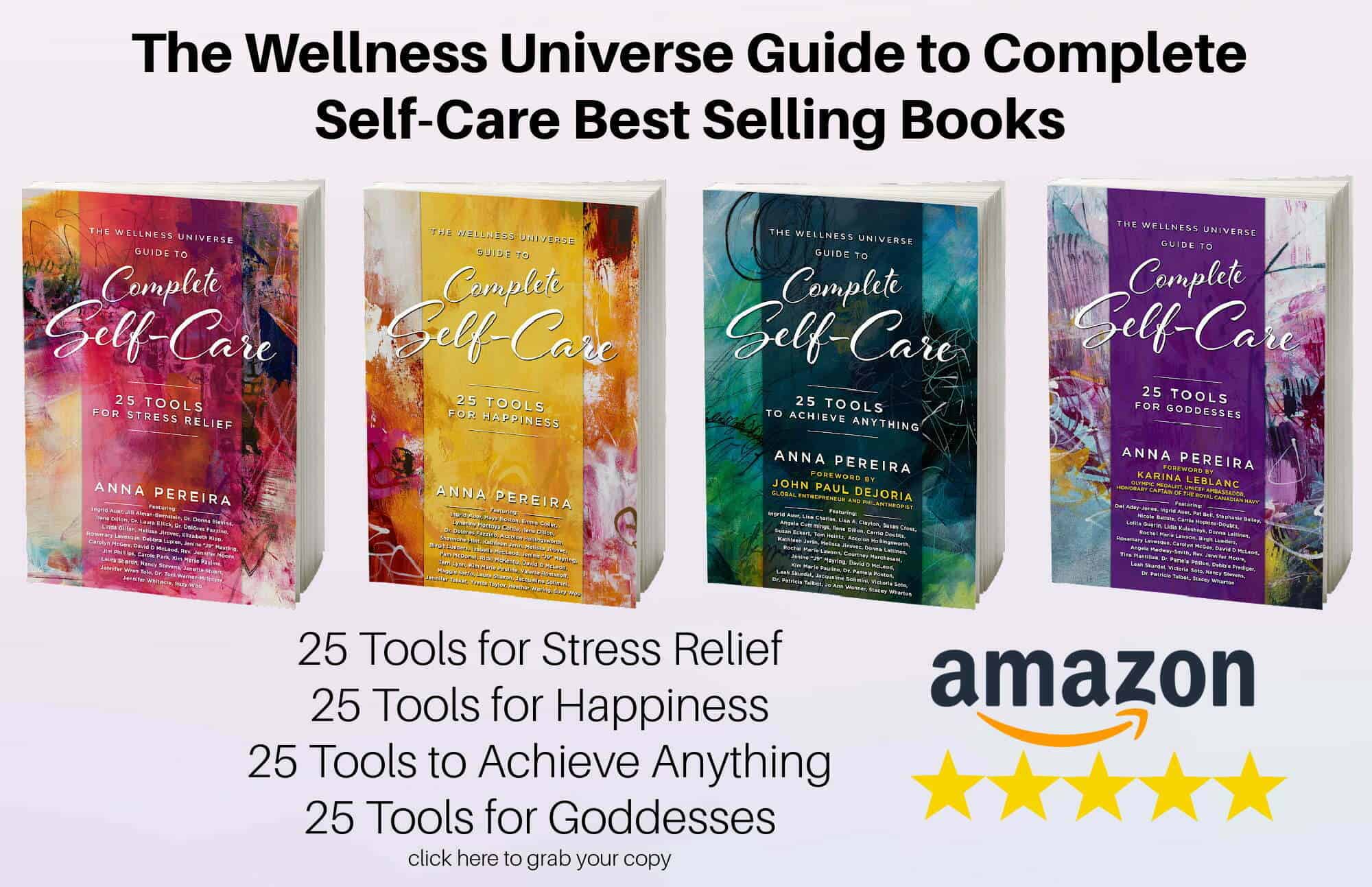
See how our self-care books are helping thousands of people around the world. Digital and paperback books are available now.
Connect to the people that help you live your best life: The Wellness Universe
Holly Blazina’s Gutsy Type Method is an alchemy of the Yoga and Ayurveda traditions, Embodied Vision™ Coaching, and her work as an author, flamenco guitarist, composer and recording artist. She helps empaths solve their gut issues, amplifying their personal power in service of their life’s purpose.
